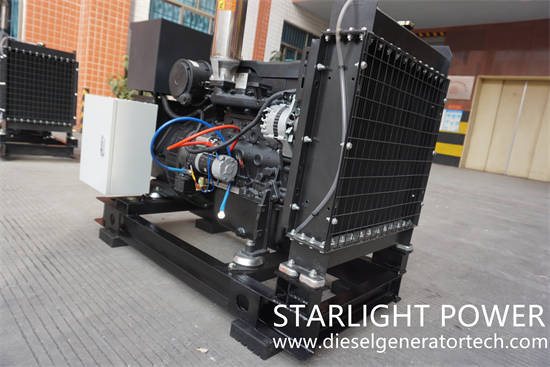A generator excitation system can be defined as a system that provides excitation current to the generator rotor windings. A well-designed excitation system provides operational reliability, stability, and fast transient response.
Four common generator excitation methods include:
1. Diversion or self-motivation.
2. Excitation Enhancement System (EBS).
3. Permanent magnet generator.
4. Auxiliary winding.

Each method has its own advantages. All methods use an automatic voltage regulator (AVR) to provide a DC output to the exciter stator. The exciter rotor AC output is rectified to the main generator rotor DC input. More advanced systems use the AVR's extra input. This article will explore the construction, function, and application of each method and include diagrams and illustrations for each method.
Automatic Voltage Regulator:
The structure of the AVR varies with the excitation used. As the generator rotates, they both receive input from the generator stator. The AVR can receive a second input to reduce or eliminate internal harmonics caused by the load feedback signal for non-linear load applications. The two commonly used types are:
Silicon Controlled Rectifier (SCR): Senses the power level from the stator and determines its firing based on the exciter voltage. Can cause trouble when used with non-linear loads.
Field Effect Transistor (FET): Senses the power level from the stator and converts it into a pulse width modulated (PWM) signal to send to the exciter. This type of AVR can be used for the excitation method. Non-linear loads will not cause feedback, resulting in field failure.
Diversion or self-motivation:
The shunt approach is characterized by a simple and cost-effective design to provide input power to the AVR. This method requires no additional components or wiring. When problems arise, fewer components and wiring need to be verified, simplifying troubleshooting.
As the generator rotates, the stator provides input voltage to the AVR. In addition, the AVR is equipped with sensors that monitor the stator output.
The AVR supplies power to the exciter and rectifies it to DC current. Current is induced into the stator for the load output.
The biggest disadvantage of this system is that the AVR is affected by the load supplied by the generator. As the load increases, the voltage starts to drop and the AVR has to supply more current to the exciter to support the demand. This pushes the AVR to its limits. If the AVR is pushed beyond its limits, the excitation field collapses. The output voltage is reduced to a very small amount.
If the AVR power supply is shorted, the generator will have no excitation source. This results in a loss of generator power output.
Generators with shunt or self-excited methods can be used for linear loads (constant loads). Applications with non-linear loads (varying loads) are not recommended for generators using this excitation method. Harmonics associated with nonlinear loads can cause breakdown of the excitation field.
Jiangsu Starlight Power Generation Equipment Co., Ltd. was founded in 1974 and is one of the earliest manufacturers of generators and diesel generator sets in China. The company has a registered capital of 218.88 million yuan. The company covers an area of 86,000 square meters and a building area of 55,000 square meters. There are more than 660 employees, including 456 professional technicians and 106 senior technicians. It has 46 sales and service outlets nationwide. The main products are diesel engines, generator sets, and diesel generators, providing users with a one-stop service of design, supply, debugging and maintenance at any time. Starlight has always insisted on using first-class talents, building first-class enterprises, manufacturing first-class products, creating first-class services, and making every effort to build a first-class domestic enterprise. If any question please feel free to visit our website https://www.dieselgeneratortech.com/ or send email to [email protected].
Copyright © Guangxi Dingbo Generator Set Manufacturing Co., Ltd. All Rights Reserved | Sitemap
Update cookies preferences